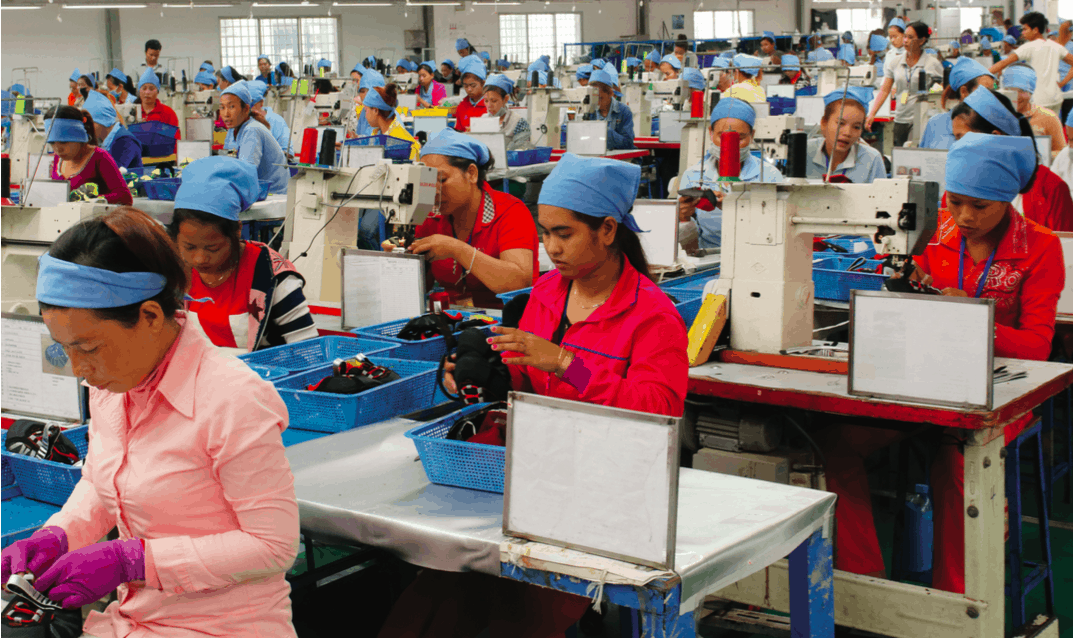
Minnie Che is a student at Harvard Law School.
On Wednesday, the BlueGreen Alliance endorsed Democratic candidate Joe Biden for president. The alliance is a coalition of U.S. labor unions and environmental groups that includes the United Steelworkers, the Utility Workers Union of America, the United Association of Plumbers and Pipefitters. This is the first time in its 14-year history that the group has backed a candidate for public office. Jason Walsh, head of the alliance, has called Donald Trump “the most anti-worker and anti-environment president of our lifetime.” The alliance supports Biden’s proposed plan of spending $2 trillion to achieve 100% clean electricity by 2035. Trump, on the other hand, has no climate plan on his campaign website and believes that the country already has clean air and water.
An article by Forbes opines on the effects of the pandemic on the economy and the likelihood of a stimulus in 2021 that includes employment for adults with autism or other cognitive differences. The article considers what an Autism Full Employment Act of 2021 would look like, noting that it would be based on the self-help efforts already utilized by the autism community with targeted funding for recovery. It would likely highlight organizations known for job placements such as Autism Speakers, Best Buddies, and Autism Society. One goal of such an act would be to expand autism employment in private sectors with initiatives addressed specifically to them. While federal and state tax credits have been issued in the past to help offset higher training and retention costs for employers, those incentives have not resulted in a great hiring impact in recent years. More hiring incentives may be fleshed out in this act to ensure that businesses in the post-pandemic economy will hire workers with autism. State and local governments must also take their own advice and hire adults with developmental differences in their departments. The pandemic has forced businesses to rethink their plans moving forward, and rebuilding the economy with more inclusive employment is one solution.
Covid-19 has brought about a skyrocket increase in demands for face masks. A New York Times report, analyzed by the Diplomat, suggests that some of those masks and other personal protective equipment imported from China were made with forced labor. Onlabor has reported on the forced labor of the Uyghurs before in connection with Nike and other American clothing brands. Now, that forced labor may be extended to face masks meant to save lives but made at “the expense of someone else’s freedom.” The U.S.’s Congressional Executive Commission on China has reported that thousands of Uyhurs are detained and forced to work in factories for textile and electronics. These prisoners are also forced to pick cotton and make garments, with at least 83 international companies (such as Walmart, Apple, Nike, and Polo Ralph Lauren) being implicated in these allegations. While the U.S. government has begun to take action to combat forced labor in China, the Diplomat article suggests that Congress should pass the Uyghur Forced Labor Prevention Act and the SEC should require companies that are traded on the U.S. stock exchange and do business in Xinjiang to disclose any possible use of forced labor in their supply chains.
As businesses have been forced to adjust and redistribute labor due to the pandemic, the food service industry in particular has had to make integral changes to meet new consumer demand. The International Dairy-Deli-Bakery Association has been tracking changes in demand trends, reporting that pre-sliced and packaged deli meats and cheese have seen a 50% increase since the pandemic began. This may affect fresh departments in supermarkets and require a reallocation of labor in these departments as customers demand both full-service and hands-off options. Doug Baker, VP of industry relations for FMI–The Food Industry Association, stated that “Grocery stores are the primary source for food at home. As long as the trend continues, retailers will need to use labor to be able to manage that. They can use those foodservice people in other areas to continue to elevate their customer service level.” As more people began to cook meals at home and buy from grocery stores during this time, more labor was necessary. From January 1 to May 11, supermarket hiring was up 63% and from May 11 to July 12, it was still up 28%, while turnover rates were also very high as people applied for temporary work while looking for other jobs. This response to the pandemic may be a permanent change resulting in more flexibility offered by retailers and upward mobility in food retailing, especially as other industries struggle to bring on new workers.






Daily News & Commentary
Start your day with our roundup of the latest labor developments. See all
July 4
The DOL scraps a Biden-era proposed rule to end subminimum wages for disabled workers; millions will lose access to Medicaid and SNAP due to new proof of work requirements; and states step up in the noncompete policy space.
July 3
California compromises with unions on housing; 11th Circuit rules against transgender teacher; Harvard removes hundreds from grad student union.
July 2
Block, Nanda, and Nayak argue that the NLRA is under attack, harming democracy; the EEOC files a motion to dismiss a lawsuit brought by former EEOC Commissioner Jocelyn Samuels; and SEIU Local 1000 strikes an agreement with the State of California to delay the state's return-to-office executive order for state workers.
July 1
In today’s news and commentary, the Department of Labor proposes to roll back minimum wage and overtime protections for home care workers, a federal judge dismissed a lawsuit by public defenders over a union’s Gaza statements, and Philadelphia’s largest municipal union is on strike for first time in nearly 40 years. On Monday, the U.S. […]
June 30
Antidiscrimination scholars question McDonnell Douglas, George Washington University Hospital bargained in bad faith, and NY regulators defend LPA dispensary law.
June 29
In today’s news and commentary, Trump v. CASA restricts nationwide injunctions, a preliminary injunction continues to stop DOL from shutting down Job Corps, and the minimum wage is set to rise in multiple cities and states. On Friday, the Supreme Court held in Trump v. CASA that universal injunctions “likely exceed the equitable authority that […]